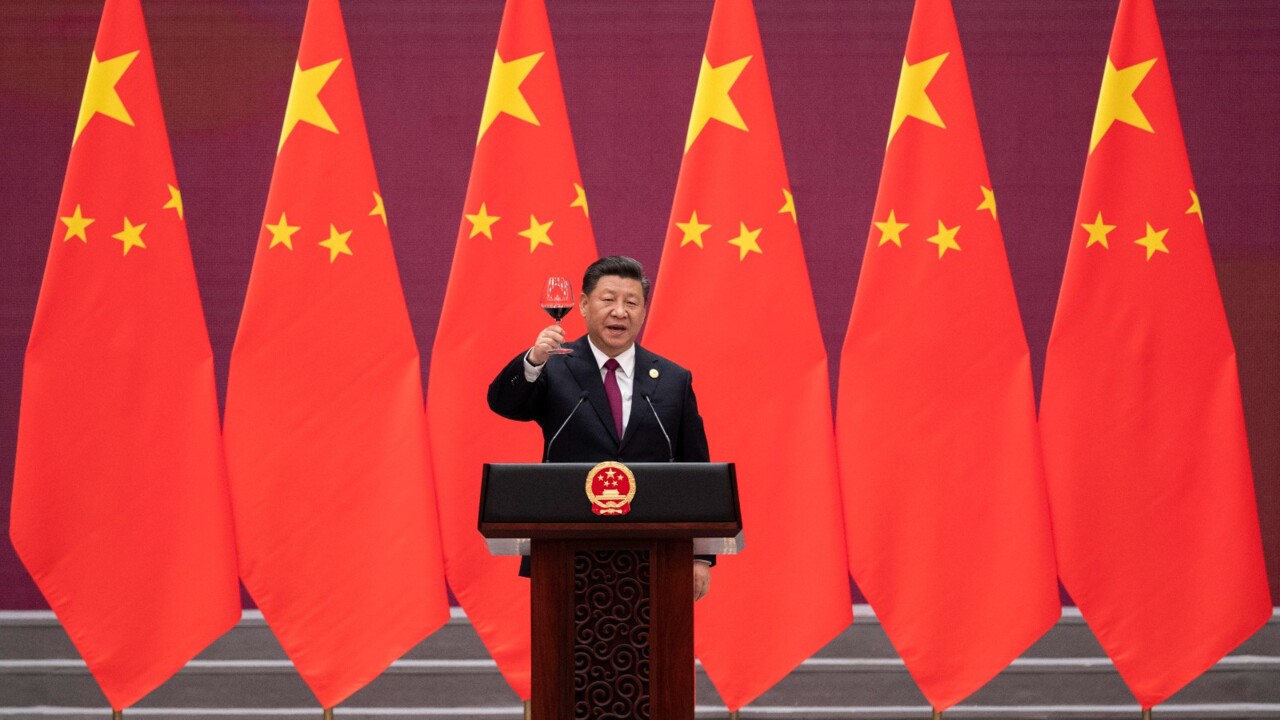Olympic Winter Games: Aussie athletes warned ‘Chinese will be watching 24/7’
This is how Australians at the Beijing Winter Games will go behind the “digital iron curtain” and protect themselves against Chinese spies.

Australian athletes attending the Beijing Winter Olympics can expect China’s cyber spies to monitor their communications, track their movements and harvest their data, security experts have warned.
“They’re going behind the digital iron curtain,’’ one senior Canberra source said.
“The Chinese surveillance state will be watching them like an unblinking eye 24/7.”
Australia expects to select about 40 athletes to compete at the Winter Olympics from February 4-20, and around 80 staff from the Australian Olympic Committee will also attend.
All athletes and staff will be provided by the IOC and AOC with temporary phones and SIM cards to use while in China, but the Chinese Communist Party is expected to track their every movement and communication, particularly if they use the official Wi-Fi provided by the Games’ organising committee.

Cyber-security expert Robert Potter said every person who visited China was subjected to data harvesting.
“China operates a significant surveillance state and these systems do not have exceptions for athletes,’’ he said.
“China operates full spectrum surveillance across multiple platforms. This includes internet access, facial recognition and vehicle tracking.
“Athletes should assume that any data transmitted from within China has been collected in some form. Any data which traverses China’s infrastructure, even if encrypted, is open to some form of collection.’’
Mr Potter, the co-CEO of cyber security firm internet 2.0, said using the Government-supplied Wi-Fi would be particularly problematic.

“All shared Wi-Fi access points transmit unencrypted by default,’’ he said.
“As a result, athletes should assume anything they do on these platforms are subject to collection.’’
While VPN – virtual private networks which route out of other countries and can provide better protection – are widely used in China, the Government is cracking down on them.
Mr Potter suggested athletes leave their personal devices at home, use encrypted apps such as Signal to communicate where possible, use VPNs if they can, and assume any device they take into China could be “subject to search or digital collection.’’
Australia has announced a diplomatic boycott and will not send Government officials to the Games. It is standard practise for Government officials entering China to take only temporary electronic devices and “burner’’ phones with them, to use VPNs, strictly avoid Wi-Fi, and to assume all their communications are monitored.

While the Chinese Government’s Ministry of State Security mostly runs its overseas cyber-spying program, on home soil the Public Security Bureau is the group most likely to be tracking the world’s athletes.
The source in Canberra pointed to the situation with Peng Shuai, the tennis player who was censored and who disappeared for three weeks after she took to social media to accuse former Chinese vice-premier Zhang Gaoli of sexual assault last month.
“It’s not like you’re entering a protective bubble of freedom for our athletes. You’re entering a totalitarian state,’’ he said.
“They will harvest everything about you, particularly if you’re using their Wi-Fi.’’
An AOC spokesman said it was taking expert advice to minimise cyber security risks.
Asked if athletes and staff would be advised not to use the local Wi-Fi, the spokesman replied: “No. Games organisers are providing unrestricted Wi-Fi access at all official venues. The AOC is providing athletes with advice on minimising risk.’’





